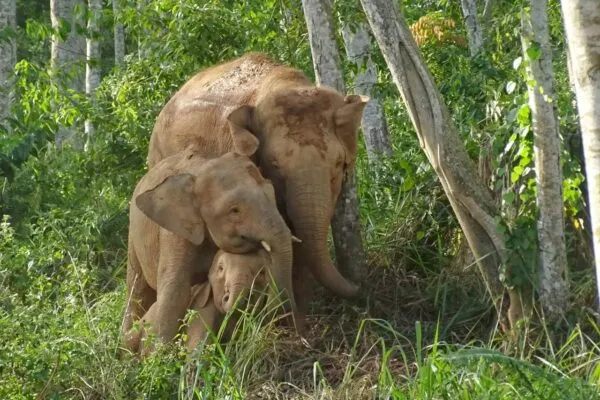Selflessly Working for Past 25 Years, The Corbett Foundation Protects Wildlife Reserves
In times of rapid urbanisation, Mumbai-based non-profit non-government organisation (NGO) has been protecting the wildlife for the past 25 years. The Corbett Foundation (TCF) is a group of committed people who have been actively working to protect critical wildlife landscapes across the Indian subcontinent.
The NGO ensures the safety of wild animals from open wells, restore the deteriorating forest patches, and establishes detailed research studies on conservation interventions along tiger corridors in central and western India.

Image: Corbett Adventure Resort
TCF was founded in 1994 by Mr. Dilip D. Khatau, a former member of the National Board for Wildlife in India and a Member of the Indian Wildlife Business Council of the Confederation of Indian Industry.
Established primarily to mitigate human-wildlife conflict in and around Corbett Tiger Reserve in Uttarakhand, the conservation efforts of the foundation have spread across Corbett, Kanha, Bandhavgarh, and Sanjay Dubri Tiger Reserves (Madhya Pradesh), Kaziranga Tiger Reserve (Assam), and Kutch (Gujarat).
It is a charitable trust that is a member of the Global Tiger Forum and International Union for the Conservation of Nature (IUCN). The foundation is also an activity partner with the United Nations Decade on Biodiversity, The Ramsar Convention and the Born Free Foundation.
Kedar Gore, Director of TCF, said,
Biodiversity conservation in human-dominated landscapes is a challenging task. Issues such as crop damage, livestock depredation, and human casualties by wild animals impose diverse and pervasive cost on local communities living in forest fringe areas. Our attempt has been to ensure overall livelihood protection and parallel wildlife conservation.
Accidental falls in the open wells can be fatal for both – humans and animals. A 2018 study reveals that at least 1,500 animals have died due to falls in open wells in central India over the past decade. Over the past two years, more than 750 open wells in 21 villages along the forest borders in Madhya Pradesh were fenced. It was part of a major preventive measure with long-term conservation impact.
Also Read: Human-Animal Conflicts in India
TCF has given a boost to conservation inside and outside protected areas. In 2018, the trust launched a tiger conservation project in Bandhavgarh Sanjay Dubri Corridor in Madhya Pradesh.
The group has restored over 83 hectares of degraded forest land and planted 41,900 saplings of native tree species in the past two years. In order to protect the trees, it was crucial to reduce the use of firewood and to do so 17 villages were provided with 1,257 energy-efficient stoves.
The foundation has also installed waterholes and 22 solar-powered pumps in the wildlife corridors. Camera traps were installed as well to capture and evaluate the success of the project and to comprehend the wildlife movement.
Working towards a harmonious coexistence between human beings and wildlife across important wildlife habitats across the country, TCF has also implemented its programmes in over 400 villages in major wildlife landscapes in the last two decades.
Via: Hindustan Times


